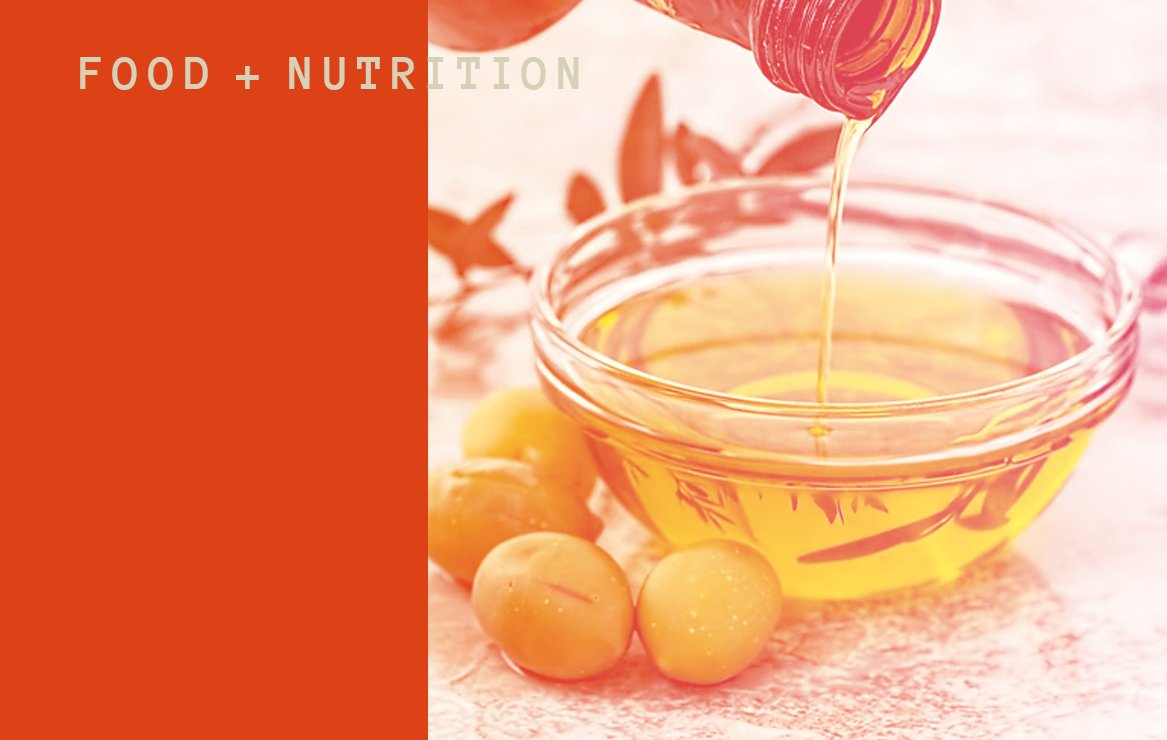the elixir of life - extra virgin olive oil
This post takes us back to the time we spent in Lake Garden, Italy, surrounded by olive trees in both this garden and the gardens of all the houses around us. Inspired by the olives of the beautiful garden, it was only appropriate to talk about the benefits of extra virgin olive oil.
Now, extra virgin olive oil is one of the key components behind the health benefits of a Mediterranean diet, which you're probably familiar with. And it's not really a diet but an eating pattern done by countries like Greece, Italy, Spain and other regions around the Mediterranean Sea.
Olive oil in a small bowl
We've got a lot of attention from researchers because people following a Mediterranean diet seem to live longer, healthier lives. They got less heart disease, less stroke and several types of cancer as well. When it comes to brain health, there's now quite a few studies that shown this type of diet is associated with better cognitive function, lower rates of cognitive decline
and a reduced risk of Alzheimer's disease.
Modern research has shown that consuming extra virgin olive oil reduces the risk of type 2 diabetes. It helps protect your skin from the sun, reduces the risk of some forms of cancer, lowers your blood pressure, lowers the risk of cardiovascular disease and has anti-inflammatory effects.
Before digging into the benefits of olive oil, let’s talk about a few studies surrounding it. So there was a very famous study called the ‘PREDIMED Study,’ and it's one of the most famous Mediterranean diet studies. Researchers in this followed three groups on different diets. They had a low-fat diet control group and two Mediterranean diet groups, one of which was supplemented with nuts and the other were supplemented with extra virgin olive oil. There were 7000 people who started the trial who all had a high risk of cardiovascular disease, and they were followed for five years.
The results were pretty spectacular. They found that those who consumed the most extra virgin olive oil had a whopping 35% lower risk of cardiovascular disease. Then they studied a random subgroup of these people over at six and a half years to see if the diets influenced their cognitive function—and it absolutely did!
Researchers found that the group following the Mediterranean diet, with the extra amount of extra virgin olive oil, performed significantly better on a wide array of cognitive performance tasks, including memory tasks, and had less cognitive impairment compared to the control group.
There was another study from France called the ‘French Three City Study,’ and that followed over 9000 people for more than 10 years. They found that those with a higher consumption of extra virgin olive oil were protected against stroke and cognitive decline. But that's not all.
According to a 2009 review published in ‘Clinical Reviews in Food Science and Nutrition,’ extra virgin olive oil may help lower inflammation and oxidative damage. In a separate 2020 systematic review and meta-analysis published in the journal Nutrition also found it was a powerful anti-inflammatory food. They found it may help to reduce the risk of atherosclerosis, cardiovascular disease and cancer.
Researchers added that some of the benefits may come from the biologically active phenolic compounds. The 2020 systematic review and meta-analysis also found that these olive oil phenolics offer a wide variety of health benefits, including reduced levels of inflammation, reduced oxidative damaged, improved platelet and cellular function, improved antimicrobial
activity and improved plasma lipoproteins, think of things like triglycerides and cholesterol.
Now, olive oil is great for your health because it's rich in monounsaturated fats, in particular a fat called oleic acid. This fat is very stable in cooking, and once it gets into your body, it's also stable and it's not prone to oxidative damage.
In fact, a podcast episode Paul had with David Gillespie touched on how vegetable oils are actually seed oils, which are prone to this oxidative damage or the damage that are stressed to our cells caused by too much free radicals formed in everyday chemical processes. So olive oil is also low in omega six polyunsaturated fats, which these seed oils are very high.
This is really important because when you have low omega-6, it allows the biochemical pathways of omega threes to dominate in the body—and that's really important for our health. Having this imbalance in omega-6 and omega-3 makes it bad for our health.
Additionally, extra virgin olive oil is rich in vitamin E. Each tablespoon of it has about 1.9 milligrams of vitamin E, which is a fat soluble antioxidants that can protect the body against eye and skin problems, plus make your hair and skin much healthier.
Extra virgin olive oil also contains what we call phytosteroids, these are similar to cholesterol and they compete with cholesterol in your body for absorption. As a result of eating these phytosteroids, they may help to lower your LDL (the bad cholesterol) and triglyceride levels, and raise your good HDL cholesterol.
Salad with a drizzle of olive oil
Another powerful polyphenol that we find particularly high amounts in extra virgin olive oil is something called hydroxytyrosol. This component helps to fight free radicals, reduce oxidative damage and be antimicrobial and protect the blood brain barrier against inflammation. That is what was shown in a 2019 review published in the journal Molecules that reported hydroxytetyrazole having a wide range of health benefits, including anti-inflammatory neuroprotective, cardioprotective lipid regulating, weight regulating, antidiabetic, anticancer, antiviral, antibacterial and metabolism supporting benefits, which are just awesome.
Now, buyers beware olive oils are not all lithium. You can buy cheap olive oil, but you can also buy extra virgin olive oil, particularly the stuff you get from overseas that often has cheap canola oil in there instead of extra virgin olive oil. They also put flavours in there.
When it comes to cooking, it's been shown that extra virgin olive oil tolerates much higher temperatures than normal olive oil. The polyphenol content is much higher when it's cooked at high temperatures than normal olive oil. So you can rest assured there's now lots of excellent, rigorous studies showing that the antioxidants in the oil protect it as it heats; hence, making it safe to use regularly.
Ideally, you need three tablespoons or 45 to 60 mil a day to get the maximum benefit. You can use it on your salads, use it to cook, to sauté your veggies—you can use it on your toast as well. So extra virgin olive oil should absolutely be your go to oil. This is something that you need to spend the extra money on and buy high quality stuff and get it jam packed into your diet.
Corporate burnout to mental fitness
Inspired to live intentionally? Want to be the change in your workplace? Fill out this form & let’s chat.


